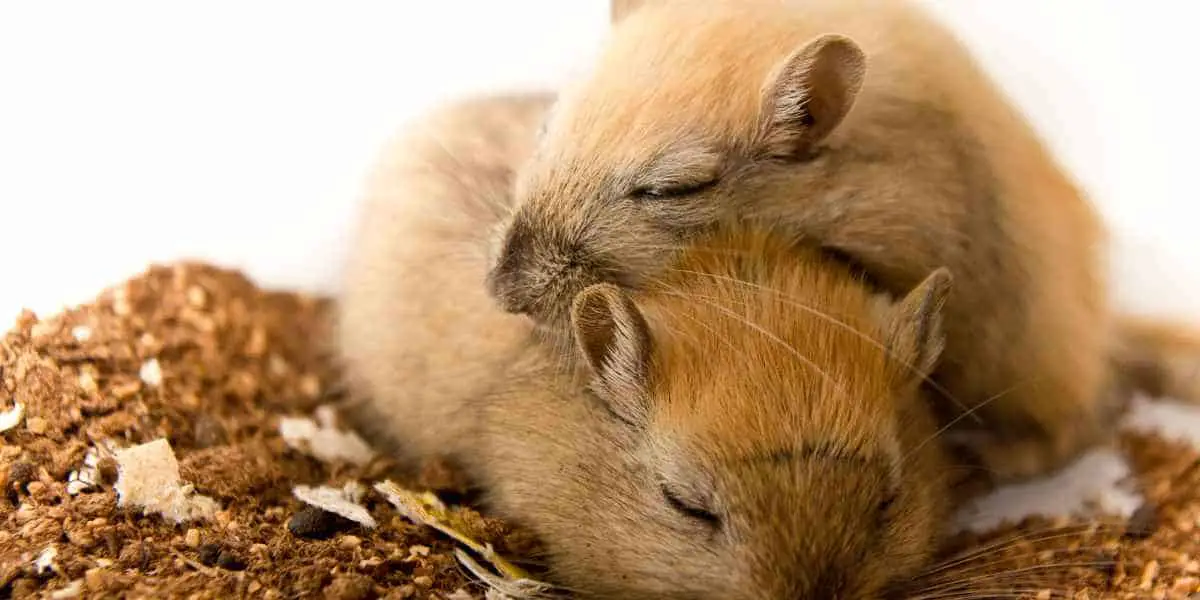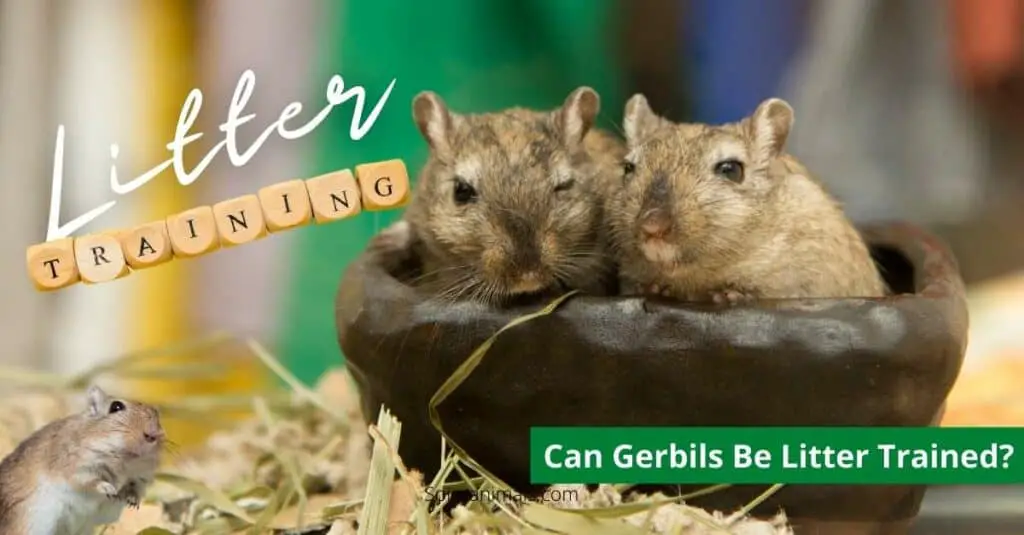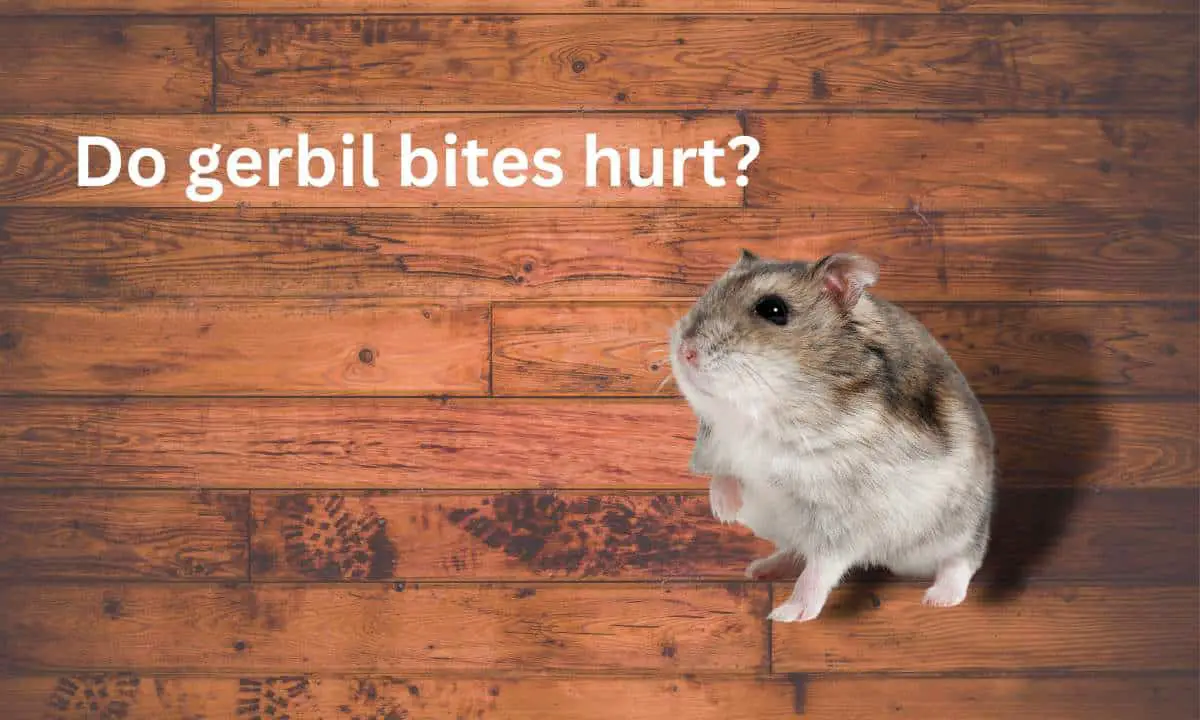If you’re wondering why your gerbil’s eyes are closed, it’s important to understand the potential reasons behind this behavior and how to address any underlying issues. While gerbils do close their eyes as part of their normal behavior, excessive or prolonged eye closure may indicate a health problem. In this article, we will explore the possible causes of closed eyes in gerbils, the signs and symptoms of eye problems to look out for, as well as provide tips on treatment and preventive care for optimal gerbil eye health.
Table of Contents
Key Takeaways:
- Gerbils may close their eyes during sleep or to cope with stress, which is normal behavior.
- Excessive or prolonged eye closure in gerbils may indicate an underlying health issue and should be monitored.
- Possible causes of closed eyes in gerbils include illness, eye infections, allergies to bedding, and changes in temperature or humidity.
- Regular checkups with a veterinarian are recommended to maintain the gerbil’s health and prevent eye problems.
- Creating a clean and comfortable environment, providing proper nutrition, and showing extra love and attention can support the gerbil’s well-being and eye health.

Normal Behavior of Gerbil’s Eyes Closing
Have you ever observed your gerbil with its eyes half-closed or wondered about the reason why your gerbil occasionally shuts its eyes? Well, here’s a comprehensive look.
Firstly, it’s perfectly normal for gerbils to close their eyes from time to time. Just like humans, gerbils need sleep to stay healthy and rejuvenate their bodies. They are primarily active during the night, so it’s likely that you might notice a sleepy eye during the daytime. During their sleep cycles, their eyes will naturally close. You might even see some gentle twitching as they enter the dreaming phase, indicating they’re in a deep sleep. It’s truly a fascinating sight!
Additionally, if you’ve ever moved your gerbil to a new environment, you might have seen them with eyes half-closed. This is often due to stress. In potentially threatening situations or unfamiliar surroundings, gerbils might close their eyes as an instinct to protect themselves. They might also burrow into hay or cardboard to feel safe. So, don’t worry if you notice that your gerbil has its eyes closed or eyes half-closed occasionally; most of the time, gerbils are fine and are just taking a moment to adjust.
However, if eyes are closed longer than usual, it could be an indication of an underlying medical condition. Symptoms listed to be wary of include lethargy, if they’ve lost weight, or if there’s gunk around their eyes. While gerbils and hamsters might seem similar, it’s crucial to remember their behaviors can differ, so always be observant.
Remember, gerbils are playful creatures, but they do sleep during the day. If you notice that your gerbil seems stuck in a declanning or isn’t its usual active self, it might be time to see a vet. An underlying medical condition, stress, old age, or something as simple as needing fresh water could be the reasons. Anytime you see symptoms that don’t get better with time, or if you feel something is wrong, it’s essential to take them to the vet. Taking care of our tiny friends is our responsibility, and we must take it seriously.
In conclusion, if your gerbil’s eyes are occasionally shut, there’s usually no cause for concern. But always be watchful for signs that could indicate they’re not feeling their best. Regular check-ups and providing them with essentials like fresh water, hay, and cardboard to play with can go a long way in ensuring their well-being.
Possible Causes of Closed Eyes in Gerbils
While occasional closed eyes are normal, if your gerbil’s eyes are closed more frequently than usual, it could be a sign of an underlying health issue such as an eye infection or allergies to their bedding. It’s important to pay attention to any changes in your gerbil’s eye behavior and watch for other accompanying symptoms.
Eye Infections: Gerbils can develop eye infections, which may cause redness, discharge, or swelling around the eyes. These infections can be caused by bacteria, viruses, or fungal organisms. If you notice any signs of an eye infection, it’s crucial to seek veterinary care promptly. The veterinarian may prescribe topical ointments or eye drops to help treat the infection.
Allergies to Bedding: Some gerbils may develop allergies to the bedding materials used in their cages. Dusty or low-quality bedding can irritate their eyes, leading to redness, itching, or excessive blinking. Consider switching to hypoallergenic bedding options or bedding made specifically for small animals if you suspect an allergic reaction.
Changes in Temperature or Humidity: Gerbils are sensitive to extreme changes in temperature or humidity levels. Exposure to these conditions can cause their eyes to become dry, leading to discomfort and increased blinking. Ensure that your gerbil’s habitat is kept at a stable and comfortable temperature and humidity level.
| Possible Causes of Closed Eyes in Gerbils |
|---|
| Eye Infections |
| Allergies to Bedding |
| Changes in Temperature or Humidity |
To determine the exact cause of your gerbil’s closed eyes, it is best to consult with a veterinarian who specializes in small animals. They can perform a thorough examination, conduct necessary tests, and provide appropriate treatment options. Remember, early intervention is key in ensuring your gerbil’s eye health and overall well-being.
Signs and Symptoms of Gerbil Eye Problems
Recognizing the signs and symptoms of gerbil eye problems is crucial in identifying any potential issues and seeking timely veterinary care. While occasional closed eyes in gerbils are normal, persistent or excessive eye closure may indicate a health problem. Keeping a close eye on your gerbil’s behavior and monitoring their eye health is essential for their overall well-being.
Common signs of gerbil eye problems include redness, swelling, discharge, and cloudiness in the eyes. These symptoms can be indicative of various eye conditions, such as conjunctivitis, corneal ulcers, or even glaucoma. If you notice any of these symptoms, it is important to consult a veterinarian who can provide a proper diagnosis and recommend suitable treatment options.
To help you identify potential eye issues, here is a summary of the key signs and symptoms to look out for:
| Signs and Symptoms | Description |
|---|---|
| Redness | The eyes appear pink or irritated. |
| Swelling | Visible puffiness or swelling around the eyes. |
| Discharge | Excessive tearing or the presence of pus-like discharge. |
| Cloudiness | The eyes appear hazy or opaque. |
If you notice any of these signs or any other abnormal behavior in your gerbil’s eyes, it is advisable to seek veterinary care as soon as possible. A veterinarian will be able to determine the underlying cause of the eye problems and provide the appropriate treatment options.
Treatment for Gerbil Eye Problems
Treating gerbil eye problems may involve using prescribed medications, topical ointments, or eye drops to alleviate the symptoms and promote healing. If your gerbil is experiencing frequent closed eyes or other signs of eye issues, it is essential to seek veterinary care for proper diagnosis and treatment. A veterinarian will be able to determine the underlying cause of the problem and recommend the most suitable treatment options.
One common treatment for gerbil eye problems is the use of prescribed medications. These may include antibiotics to treat bacterial infections or anti-inflammatory drugs to reduce swelling and inflammation. Your veterinarian will be able to recommend the appropriate medication based on the specific condition affecting your gerbil’s eyes.
In addition to medications, topical ointments or eye drops may be prescribed to provide relief and promote healing. These can help soothe the eyes, reduce irritation, and prevent further complications. It is important to follow your veterinarian’s instructions carefully when administering any medications or ointments to your gerbil’s eyes.
| Treatment for Gerbil Eye Problems | Common Medications |
|---|---|
| Prescribed Medications | Antibiotics, anti-inflammatory drugs |
| Topical Ointments | Eye ointments, soothing creams |
| Eye Drops | Antibacterial, anti-inflammatory eye drops |
While treating gerbil eye problems, it is crucial to provide a clean and comfortable environment for your pet. Regularly clean the gerbil’s habitat and ensure that bedding materials are dust-free to minimize the risk of allergies or irritations. Maintaining a balanced diet rich in essential nutrients also contributes to overall eye health.
Remember that early detection and prompt treatment are key to effectively managing gerbil eye problems. If you notice any signs of eye discomfort or abnormal behavior, reach out to a veterinarian specializing in small animals for guidance and support. By taking proper care of your gerbil’s eyes and attending regular checkups, you can help ensure their well-being and maintain optimal eye health.
Preventive Measures for Gerbil Eye Health
Taking preventive measures is crucial in maintaining your gerbil’s eye health. By following these simple steps, you can help ensure that your furry friend’s eyes stay happy and healthy.
- Keep their habitat clean: Regularly clean your gerbil’s cage to remove any dust, debris, or bacteria that can irritate their eyes. A clean environment reduces the risk of eye infections and other eye-related issues.
- Use suitable bedding: Choose bedding that is safe for your gerbil’s eyes. Avoid using dusty or heavily scented bedding, as these can cause irritation and discomfort. Opt for bedding made from safe materials like paper bedding or aspen shavings.
- Provide a nutritious diet: Proper nutrition plays a vital role in maintaining your gerbil’s overall health, including their eye health. Feed them a balanced diet that includes fresh vegetables, protein-rich foods, and high-quality gerbil pellets. Consult your veterinarian for specific dietary recommendations.
In addition to these preventive measures, it is important to be aware of any changes in your gerbil’s behavior that may indicate an eye problem. Watch out for signs like redness, swelling, discharge, or cloudiness in their eyes. If you notice any of these symptoms, it is recommended to seek veterinary care promptly.
Remember, a clean and comfortable environment, proper nutrition, and regular checkups with a veterinarian are essential for maintaining optimal gerbil eye health. By taking these preventive measures and providing your gerbil with the care they need, you can help keep their eyes bright, healthy, and full of life.
Providing a Comfortable Environment for Gerbils
Creating a comfortable environment for your gerbil by maintaining stable temperature and humidity levels is essential to promote their overall well-being, including eye health. Gerbils are sensitive creatures and can be affected by extreme changes in temperature or humidity. It is important to provide them with an environment that closely mimics their natural habitat.
One way to ensure optimal temperature and humidity levels is by placing your gerbil’s enclosure in a room that is consistently kept between 65-75°F (18-24°C) and has a relative humidity of around 40-60%. This will help prevent any drastic changes that may negatively impact your gerbil’s eyes or general health.
| Temperature Recommendations | Humidity Recommendations |
|---|---|
| 65-75°F (18-24°C) | 40-60% |
In addition to temperature and humidity, it is important to provide your gerbil with appropriate bedding materials that are free from dust or allergens. Bedding made from shredded paper or aspen shavings are good choices as they are less likely to cause irritations or allergies. Avoid using cedar or pine shavings, as they can be harmful to the respiratory system and potentially irritate your gerbil’s eyes.
Regularly cleaning your gerbil’s enclosure is also crucial for maintaining a clean and comfortable environment. Gerbils are prone to respiratory issues, and a dirty enclosure can contribute to eye infections or other health problems. Aim to clean the enclosure at least once a week, removing any soiled bedding, uneaten food, and droppings. This will help prevent the buildup of bacteria and ensure a healthy living space for your gerbil.
Supporting Gerbil Well-being and Mental Stimulation
Aside from physical health, providing your gerbil with extra love and attention, along with mental stimulation, can contribute to their overall well-being, including maintaining healthy eyes.
Gerbils are social animals that thrive on interaction and engagement. Spending quality time with your gerbil, such as gently petting them or allowing them to explore outside their enclosure under supervision, can promote a sense of security and happiness. Consider creating an enriching environment by adding toys and tunnels for your gerbil to explore, providing mental stimulation and preventing boredom.
Furthermore, establishing a daily routine of playtime and handling can help your gerbil feel more comfortable and build trust. Bonding with your gerbil through gentle handling and allowing them to interact with you on their terms can strengthen the human-animal connection and reduce stress.
| Benefits of Providing Love and Attention: | Effects on Gerbil |
|---|---|
| Promotes well-being | Enhances overall health |
| Reduces stress | Improves immune system function |
| Builds trust | Encourages positive behavior |
Remember, each gerbil is unique, so it’s essential to pay attention to their individual preferences and needs. Some gerbils may enjoy being gently held or stroked, while others may prefer interactive toys or climbing structures. Observe your gerbil’s behavior and adjust your interactions accordingly.
In conclusion, providing your gerbil with extra love and attention, along with mental stimulation, is crucial for their overall well-being, which includes maintaining healthy eyes. Bonding with your gerbil, providing an enriching environment, and establishing a consistent routine of playtime can help ensure that your furry friend is happy and thriving.
Seeking Veterinary Care
If your gerbil’s eye problems persist or worsen despite your efforts, it’s crucial to seek veterinary care to ensure proper diagnosis and treatment. A veterinarian will be able to assess the condition of your gerbil’s eyes and determine the underlying cause of the problem. They have the expertise to perform necessary tests and provide the most appropriate treatment plan.
During your visit to the veterinarian, provide them with a detailed history of your gerbil’s symptoms and any changes in behavior or environment. This information will assist them in making an accurate diagnosis. The veterinarian may conduct a thorough examination of your gerbil’s eyes, looking for signs of infection, inflammation, or other issues.
Based on their findings, the veterinarian may prescribe medication, such as topical ointments or eye drops, to treat the specific condition affecting your gerbil’s eyes. They may also recommend changes in the gerbil’s environment or diet to support their eye health. It is essential to follow the veterinarian’s instructions carefully and administer any prescribed medication as directed.
Remember, a veterinarian is the best resource when it comes to your gerbil’s eye health. They can provide expert advice and guidance, ensuring your gerbil receives the proper care and treatment needed to maintain optimal eye health. Regular checkups with a veterinarian are recommended to monitor your gerbil’s overall well-being and address any potential health concerns.
| Veterinary Care for Gerbil Eye Problems: |
|---|
| Seek veterinary care if eye problems persist or worsen. |
| Provide the veterinarian with detailed information about your gerbil’s symptoms and any changes in behavior or environment. |
| Follow the veterinarian’s instructions for medication administration and any recommended changes in the gerbil’s environment or diet. |
| Regular checkups with a veterinarian are important for monitoring your gerbil’s overall well-being and eye health. |
Conclusion
Understanding why your gerbil’s eyes may be closed and taking steps to address any underlying issues is essential for ensuring their eye health and overall well-being. Remember to prioritize regular checkups with a veterinarian and provide a clean and comfortable environment for your furry friend.
Gerbils sometimes close their eyes as part of their normal behavior, such as during sleeping or to cope with stress. However, if a gerbil’s eyes are closed more than usual, it may indicate an underlying health issue. Possible causes of closed eyes in gerbils include illness, eye infections, allergies to bedding, and changes in temperature or humidity.
Monitoring your gerbil’s behavior and seeking veterinary care if necessary is crucial. A professional veterinarian is the best resource for diagnosing and treating any underlying health issues. Ensuring a clean and comfortable environment, providing proper nutrition, and showing extra love and attention can help support your gerbil’s well-being.
Regular checkups with a veterinarian are recommended to maintain your gerbil’s health. By taking proactive measures and being attentive to your gerbil’s eye health, you can ensure they live a happy and healthy life.
FAQ
Q: Why are my gerbil’s eyes closed?
A: There can be several reasons why your gerbil’s eyes are closed. It could be due to sleep, illness, or an underlying health condition.
Q: What does it mean if my gerbil’s eyes are half closed?
A: If your gerbil’s eyes are half closed, it could be a sign of sleep or relaxation. However, if the eyes remain half closed for extended periods, it could indicate an eye infection or other health issue.
Q: Should I take my gerbil to the vet if its eyes are half closed?
A: If you notice that your gerbil’s eyes are half closed for a prolonged period, it is recommended to take your gerbil to the vet for a proper diagnosis and treatment.
Q: Can bedding cause my gerbil’s eyes to be half closed?
A: Certain types of bedding, such as dusty or allergenic materials, can cause irritation to your gerbil’s eyes, leading to them being half closed. Consider changing the bedding material to see if the condition improves.
Q: What should I do if my gerbil’s eyes are shut completely?
A: If your gerbil’s eyes are shut completely and the gerbil appears to be lethargic, it indicates a potential health issue. Take your gerbil to the vet for a thorough examination.
Q: Can eye infections cause my gerbil’s eyes to be closed?
A: Yes, eye infections can cause your gerbil’s eyes to be closed or half closed. If you suspect an eye infection, it is essential to seek professional veterinary care for proper diagnosis and treatment.
Q: Is it normal for gerbils to close their eyes while grooming?
A: Yes, it is normal for gerbils to close their eyes while grooming. Gerbils are small rodents that groom themselves by licking their fur. Closing their eyes is a natural behavior during grooming.
Q: What could be the reason why my gerbil’s eyes are half closed for a prolonged period?
A: If your gerbil’s eyes are half closed for an extended period, it could be due to an eye infection, allergies, or a severe health problem. It is advisable to consult a vet to determine the underlying cause.
Q: Can gerbils sleep with one eye closed?
A: Yes, it is normal for gerbils to sleep with one eye closed. Gerbils are prey animals and tend to keep one eye open while sleeping to remain alert for potential threats.
Q: What should I do if my gerbil won’t open its eyes?
A: If your gerbil won’t open its eyes, it could be a sign of an underlying health condition. Take your gerbil to the vet for a thorough examination and appropriate treatment.




